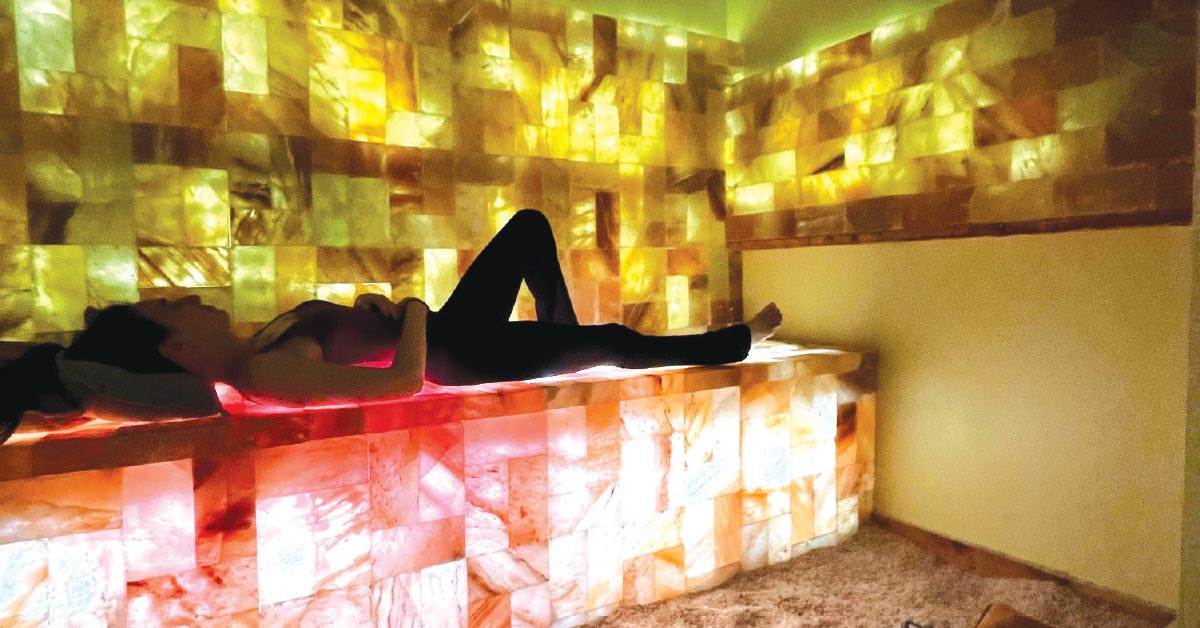Come along as we explore alternative wellness treatments involving salt, sweat and ice—along with what potential benefits await.
According to the Salt Therapy Association (STA), salt therapy—also known as halotherapy—has origins dating back to the salt mines and caves of Eastern Europe and Russia. Today, the idea of inhaling salt-enriched air via salt therapy is thought by some to improve respiratory wellness, along with skin and sleep quality.
The STA says, "Scientific research has found that inhaled dry salt particles have bactericide, mucokinetic, hydrophilic, and anti-inflammatory properties, which may help to reduce inflammation in the entire respiratory tract and widen the airway passages."
At Pink Lounge Dry Salt Therapy in Kentwood, visitors can try salt therapy out for themselves by sinking into total relaxation through a variety of services. Using 100% authentic pink Himalayan salt, the Pink Lounge offers dry salt bed therapy (where you can lay directly on a bed of salt), a hand and sole detox (using contact with heated salt blocks), and a pink Himalayan salt room (meant to mimic natural salt caves, complete with lounge chairs).
"Our spa has over $50,000 worth of salt and the rooms have been custom built," said Jessica Ann Tyson, Owner, The Pink Lounge. "If you have issues breathing, issues with anxiety, COPD or arthritis and joint pain, sitting in our salt lounge or resting in our salt beds could prove to be extremely beneficial to you, as it has been for many of our customers over the past three years we've been open."
Tyson shared the lounge also offers salt for purchase that people can take home and use responsibly, should they want to try some at-home salt therapy methods.
"We do not claim to take the place of a doctor—period," Tyson said. "However, in other countries, salt therapy is used regularly and has been for many, many years and continues to be proven a safe and effective way of treating some common conditions without a huge expense."
It's important to note: The Salt Therapy Association says while there are many clinical and scientific studies conducted on dry salt therapy throughout the world, the FDA has not evaluated their statements and dry salt therapy is not intended to diagnose, treat, cure or prevent any disease.
Written by Sarah Suydam, Managing Editor for West Michigan Woman.
This article originally appeared in the Jun/Jul '24 issue of West Michigan Woman.




